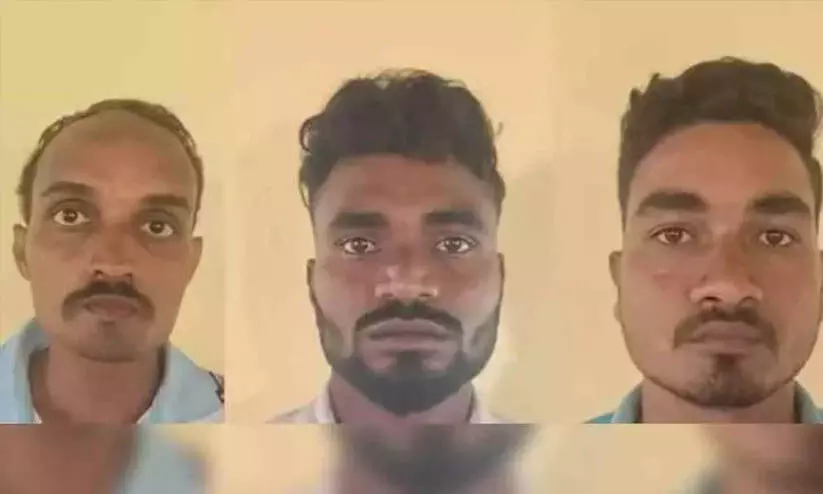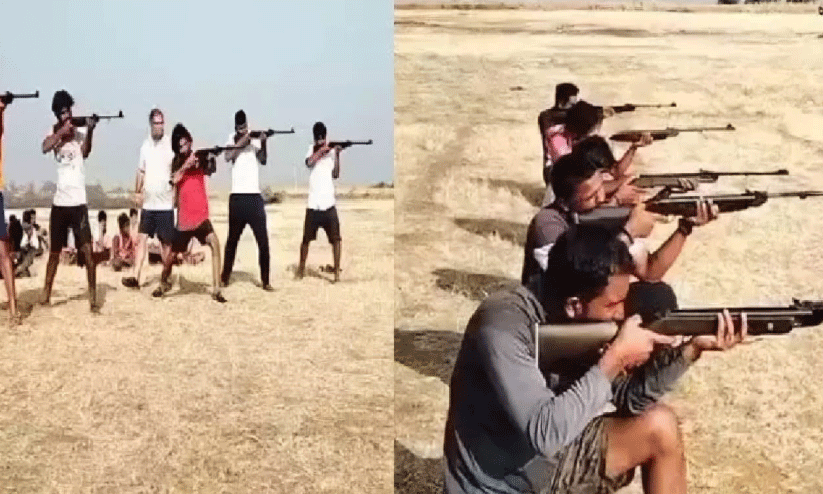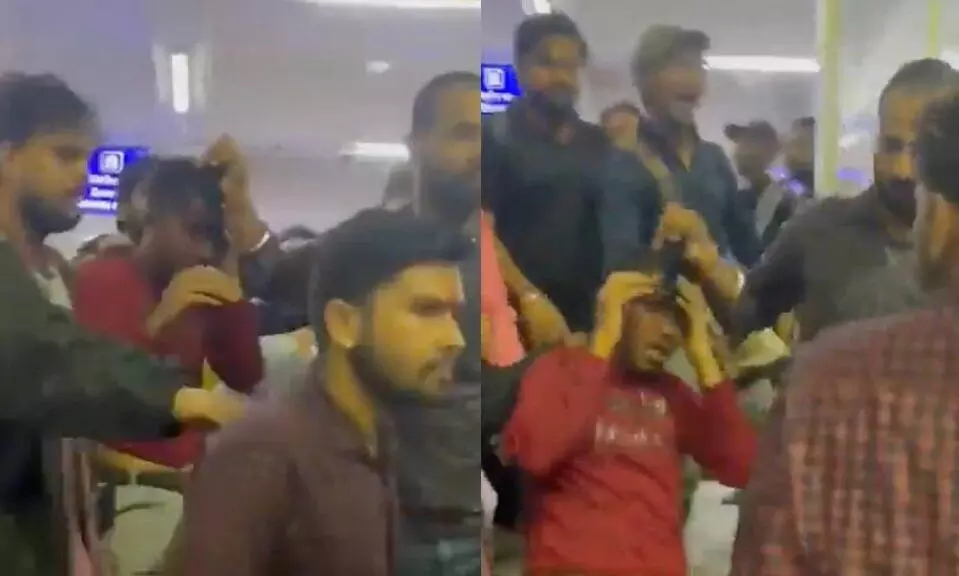
God saved Belagavi
text_fieldsIf that sinister plot had even partially succeeded, it wouldn't have been just the lives of 41 children and a village at risk but the security of Karnataka state and even the Indian nation itself could have been in jeopardy. What name can be given to the venom that runs through the veins of those who plotted the vile scheme of causing harm to children by poisoning the drinking water tank of a government school in Hulikatti village in Belagavi district, just to get the headmaster transferred? The headmaster, Suleman Gorenayak, who was beloved by the children and parents alike and always stood by the villagers in their hour of need, was seen as deeply flawed in the eyes of the extremist group Sri Ram Sene solely because he followed the Islamic faith. The plot to remove Suleman from his job and drive him out of the village was orchestrated by Sagar Patil, the president of the Savadatti taluk unit of Sri Ram Sene, along with his followers. The same Sene, which considers it a mission to assault young men and women who talk to or travel with people from other religions, allegedly blackmailed a young man into participating in this cruel act by threatening to expose his relationship with a woman from a different caste. By luring an unsuspecting UP school student with chocolates and money, the conspirators made him poison the water. Around twenty children drank the contaminated water from the school tank, but a disaster was narrowly averted thanks to their timely admission to the hospital. It was only because the Karnataka Police did not fall into the Hindutva trap and conducted a proper investigation that the conspiracy was unearthed and the accused were identified and arrested. But the bigger question is when will such communal terror plots finally come to an end?
Since 2005, despite consistent inciting of communal unrest in Karnataka and other states, legal action against members of the Sri Rama Sene has been rare, largely due to the support they receive from those in power and their accomplices within the police. On New Year’s Day in 2012, a Pakistan flag was hoisted on a government building in Sindagi near Bijapur, sparking protests and clashes in the region led by Hindutva groups. The unrest escalated into stone-pelting at a mosque. However, a police investigation later revealed that it was the Sri Rama Sene itself that had hoisted the flag in a deliberate act of provocation. In another instance, the same organisation collected financial aid for the family of Parashuram Waghmare, an accused in the murder of courageous journalist Gauri Lankesh. Furthermore, the group’s spokesperson, Vaibhav Raut along with 11 others affiliated with Hindu Janjagruti Samiti and Sanatan Sanstha, was arrested in Maharashtra after authorities uncovered a stockpile of explosives and weapons intended for planned attacks across various locations. In 2021, a gruesome murder took place in Belagavi, where 24-year-old Arbaz Aftab Mulla was brutally hacked to death and his body dumped on a railway track after being accused of “love jihad.” The accused in this case include the taluk president of the Sri Ram Sene, Pundalik Maharaj, along with his associates. The organisation has also been linked to various other hate-driven crimes, including delivering inflammatory speeches, vandalising shops run by Muslim traders, storming Christian prayer gatherings, and violently assaulting innocent people over allegations of transporting or consuming beef. Young men and women have even been attacked simply for speaking to members of other communities.
Although the BJP government in Karnataka was voted out in the last Assembly elections thanks largely to the vigilance and activism of civil society groups, the Sangh Parivar has once again begun to raise its head, reigniting communal campaigns and reviving divisive agendas in recent months. Even though Sri Rama Sene activists had organized weapons training sessions, the police only registered a case in a perfunctory manner. In the first half of 2025 alone, two brutal killings stand out: Mohammed Ashraf from Pulpally in Wayanad, was lynched by RSS workers, and Kolthamajal Juma Masjid secretary Abdul Rahiman was lured out of his home and murdered. We need to understand that the Sangh Parivar has resumed its campaign of hate speech and violence as it sees no other way to maintain relevance except through stoking communal tensions and inciting polarisation. It is hard to believe that the real agenda behind the terrifying plot recently uncovered in Hulikatti was merely to force a school headmaster to lose his job and leave the village. Had even one child been seriously harmed, the entire nation would have been engulfed in flames. As senior journalist Rajdeep Sardesai rightly pointed out, since the accused belonged to a Hindutva extremist group, mainstream media outlets—otherwise quick to peddle conspiracy theories—chose silence and looked the other way. Back in 1993, an RSS worker died in a bomb explosion in Tanur, Kerala while allegedly preparing explosives to incite violence during a Sri Krishna Jayanti procession in which children were participating. At the time, the district police chief had publicly remarked, “God saved Malappuram. Otherwise, the entire district would have burned in communal riots". In a similar manner, Belagavi too has narrowly escaped such a fate this time. However, the fact that hateful, divisive forces continue to lurk around, waiting to strike, is a deeply disturbing reality that should concern every peace-loving citizen.









